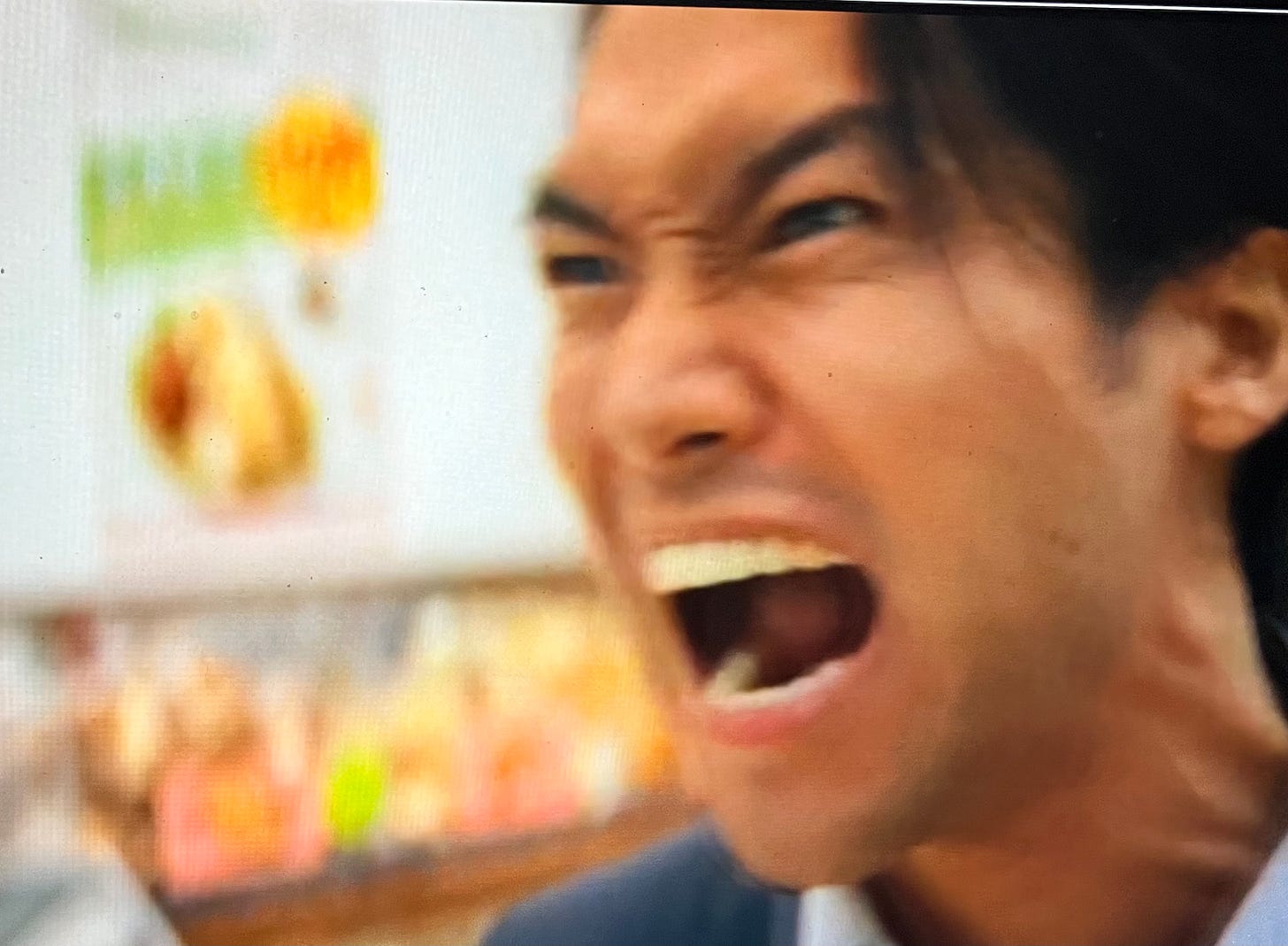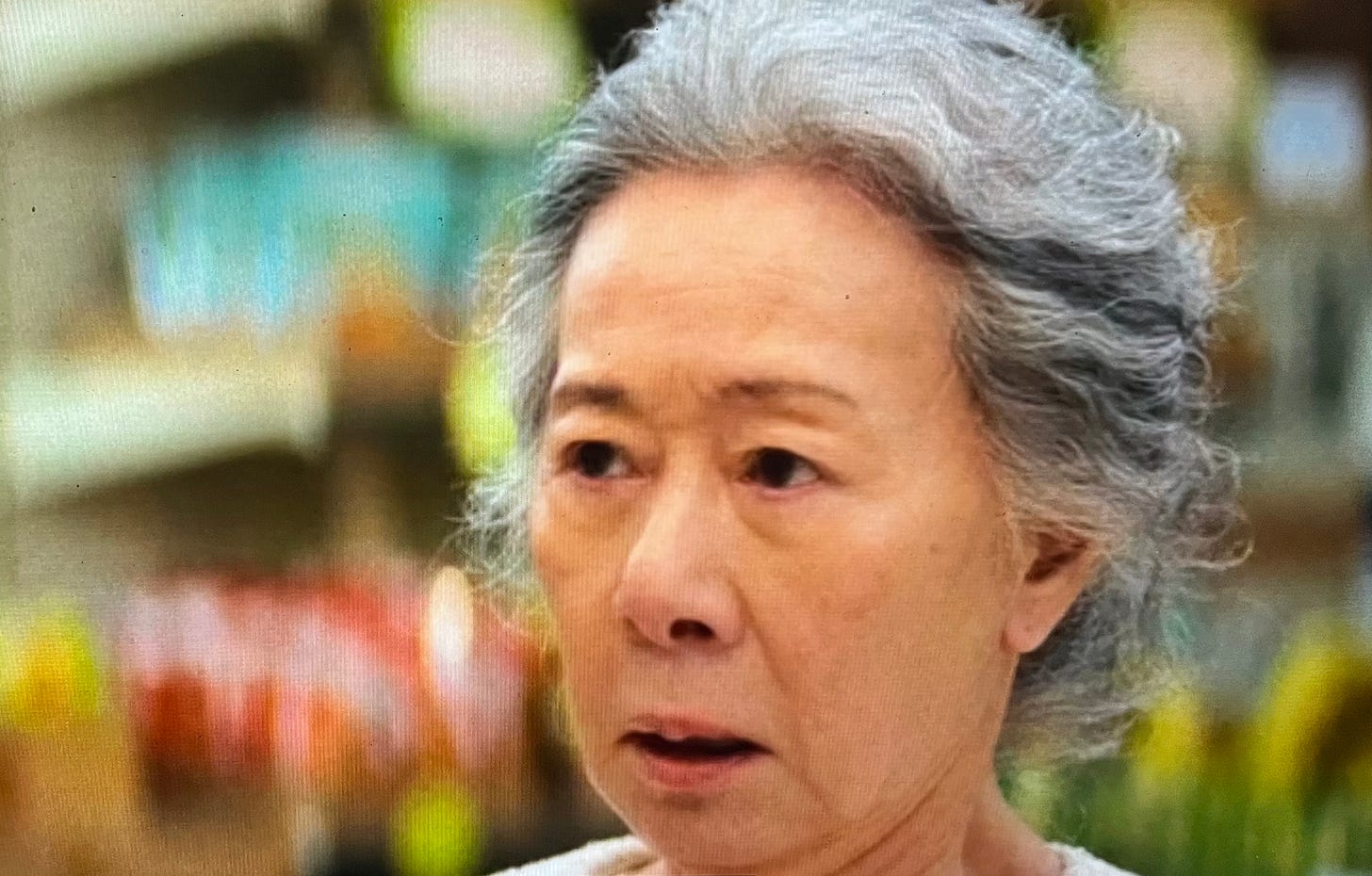Comedian (and UCD “The Harvard of Sacramento” alum) Hasan Minhaj describes a social remittance called the American Dream Tax.
“My dad’s from that generation like a lot of immigrant parents. Like if you come to this country, you’re gonna pay this thing called the ‘American Dream tax.’ You’re gonna endure some racism and if it doesn’t cost you your life, you lucked out. Here, pay it! Here you go, Uncle Sam.
But for me, like a lot of us, I was born here. So I actually have the audacity of equality. Like, nah, I’m in Honors Gov, I have it right here: ‘Life. Liberty. Pursuit of happiness.’ I have it right here, it says ‘All men are created equal.’ It says it right here, ‘I’m equal. I’m equal.’ I DON’T DESERVE THIS!”
The best/worst scene in this first episode of Pachinko, Season Two—Solomon yelling at the Japanese baker—mirrors Minhaj’s response to the tax. Yes, his anger was off putting. Yes, it was ugly. And yes, it was the epitome of Korean-Man-Rage.
It was also a scene that has played out in every immigrant child’s life in America. All the elements are so familiar:
A racist encounter.
Aggression and an insulting hostility towards a parent/grandparent who doesn’t speak English very well.
The parent/grandparent not wanting to make a scene
The immigrant child intervenes
Some form of “learn English or go back to where you came from.”
“I WAS BORN HERE...expletives! I went to UC Davis!!!”
Parent/grandparent walking away, head down, shocked and ashamed. (ALL THE FLOWERS to Youn Yuh-jung in this scene. I’ve seen her reaction in the faces of my parents many times over.)
This scene, ugly as it is, resonates with the Korean American experience.
Solomon’s outrage was in response to a lifetime of being passed over, a lifetime of being treated as a second citizen and, most exhausting, a lifetime of biting our tongues and swallowing our bitterness. It was a predictable outburst—spurned when the mantra “keep your head down and work hard” failed to deliver on its promises for the umpteenth time.
In college basketball’s March Madness, the running philosophy is “Survive and Advance.” In a one-and-done, single-elimination tournament, the modus operandi is to exhaust all your resources to win the only game that matters: the one you’re playing right now. Go all out and think about tomorrow’s consequences, tomorrow. Survive and Advance.
Korean Americans have lived by this philosophy for the last three generations. Pachinko is a drama that chronicles three generations of a Korean family who have lived through Japanese colonial rule, the Korean war, and immigration/racialization in America. That’s three consecutive generations of Survive and Advance mentality. You just have to win this game, win the task that’s right in front of you, and move on to the next game. It’s our cultural proverb.
But the main difference between a college basketball tournament and our lives is that tournaments are short-lived. They end and after one month, a winner is crowned, and everyone goes back to normal. But what happens if March Madness turns into 1900s Madness? What happens, long-term, when survive-and-advance is the only way to live for a hundred years?
I believe we, like Solomon, have reached our tipping point.
At last November’s KALI National Gathering, Dr. Alex Jun compared our generation of Korean Americans (those who grew up in America as immigrant children during the 70s/80s/early 90s) to the third, and weak, leg of a four-person relay race. We are the slowest generation. The weak leg of the relay. But perhaps our weakness is necessary, if only for the sole purpose of ending our survival-MO of survive-and-advance.
That makes sense to me.
Sooner or later, survive-and-advance must end. And if that’s our generation’s God-given task in life, if that’s our collective goal, so that the next generation can finally be the generation that learns to live in the shalom of our Father—learns to exist in a healthy and long-term manageable/sustainable way—then I think that’s a worthy goal. No longer survive and advance, but thrive and abide.
That’s how the anchor leg of the relay wins the race for us all.






